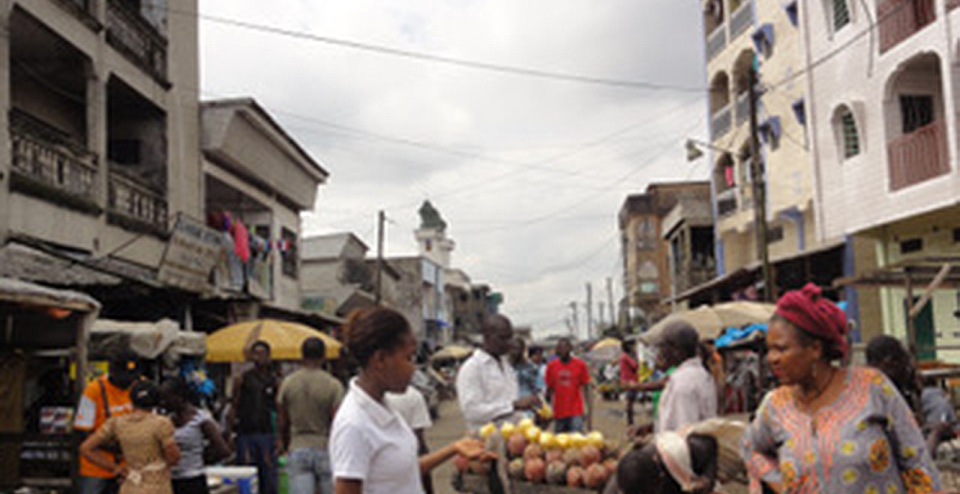
Field picture taken from 2011 survey: Source Research ICT Africa.
Do you remember why you went online for the first time in your life? This is my favourite question that you may not have yet thought about – but it reflects the starting point in becoming a netizen.
This is the second in the series of columns on Access and Beyond that chronicles the research conducted by Research ICT Africa in Kenya, Rwanda, South Africa and Nigeria. In this column I focus on motivations for internet use. By understanding why people go online, we can better shape interventions for a connected society.
In the research we explored motivations for internet access and use from the perspective of people — why they went online and what content they sought.
My main motivation was to communicate with my relatives living abroad and thanks to my support from relatives I managed to get money to pay a phone set and get connected to the internet. I m also very much interested to learn more and get updated information”.-Rural Rwanda Female respondent

Why men and women went online?
The main point of internet access for most respondents is through mobile phones, in particular smart phones. In comparison to a laptop or a computer, phones are seen as cheaper for internet use. Men and women in urban areas and peri-urban areas had diverse ways of accessing the internet, via their personal laptops, tablets, personal computers and computers at libraries, schools or internet cafés.
In an environment where voice and SMS tariffs are expensive compared to data services, users went online because of the ease of access to information and a cheaper option to communicate in comparison to voice services. Information could be accessed quicker via the internet than having to wait to find out through other means. Social networks have been seen as the main drivers of internet uptake. Hence it is no surprise that socialising was also cited as a reason to go online, whether with local friends or getting to meet new people. Socialising online was also done with the hope of finding love:
‘You can, for example, meet on Facebook with others … on friend request, you do not know that person but at the end of the day you meet, chat and hit it from there’ (female peri-urban respondent, South Africa).

Your occupation, or lack thereof also plays a role in motivating one to go online. Students went online because it was required of them and for further research. Unemployed people were motivated to go on the internet to look for jobs and market themselves, while entrepreneurs went online to search for business-related information. Having internet access, was cited to be integral in some positions of employment. One male respondent from South Africa cited as they were a leader at work they were forced into using WhatsApp while a female respondent in a similar position in Kenya stated that
For me, I am in leadership. I must be on WhatsApp most of the time.

What content was accessed

In querying whether individuals could name their top five sites, it was apparent across all participants that Google is the most popular, followed by social media sites. At this point the gendered differences begin to appear from the respondents. Women searched for fashion trends, online shopping and advice.
Google mostly, say for instance I have pimples, unusual pimples, I google for the symptoms for instance, or say I have flu, how to heal it faster with home remedies, or I have a sore tummy in the middle of the night, I go into home remedies…” (South African-Peri urban female)

However, women in urban and peri-urban locations highlighted the health content in comparison to rural women. While it was not probed in the rural focus groups through the RIA household survey, I will be using the data to determine who asks for health information and their location. Fashion trends and online shopping was mentioned mostly by women in the focus groups than men. For men, content distinct to them was betting and sports sites.
When it came to accessing content related to business, educational research and work opportunities, there truly was no distinction for men and women. As pointed out already, seeking this content was based on one’s needs. Business people learnt to utilise the online platform to further their work. For those in the educational field, the internet and to some specifically google is ‘ife’ (Nigerian term) — a free gift where they could ask questions and get answers. Female respondents from peri-urban areas in South Africa and Kenya stated that they make use of the internet to apply for further education: ‘When applying for a school you scan and email the application’ (peri-urban female respondent).
For those in the educational field, the internet and to some specifically google is ‘ife’ (Nigerian term) — a free gift where they could ask questions and get answers.

While at times, people are wary of the constant use of social media, social forums online provide a sense of community, where individuals are able to interact on specific topics. Respondents in Kenya, for example, cited accessing specific content from ‘Kilimani mums and Kisumu dads’, where listeners post issues that affect them and their family, to get advice from the other listeners. The importance of being connected to other people was expressed well by one respondent, who at that time did not have access to the internet and therefore classified as a non-user:
Whenever I’m online it seems like I’m in a forum like this discussing because in the house you have many opinions. Many people will talk, chat and send their messages. I learnt from there very, very well. During that time if I have challenges as a youth then, once I am online I will see those challenges discussed…’ (Female urban respondent, Nigeria)

In summary, the motivations for going online based on our respondents are regardless of gender. For both men and women it is the ability to communicate faster and cheaper as well as finding information that draws them online.
When it comes to gender, the actual challenge requires that we look at rural men and women versus their urban counterparts. In the study it was evident that the content accessed by the urban audience is more diverse than the rural audience. The question that would need to be explored is why is that? Why are rural and urban women’s experiences different and how does it impact on their day to day lives..
When it comes to gender, the actual challenge requires that we look at rural men and women versus their urban counterparts.
Footnotes
1. Internet use barriers and user strategies: perspectives from Kenya, Nigeria, South Africa and Rwanda, Beyond Access Public Policy Paper series, 2017. Series Editor: Alison Gillwald
http://researchictafrica.net/home.php?h=205
2. Icons from The Noun Project.
Communication by Oksana Latysheva from the Noun Project
Local SEO by H Alberto Gongora from the Noun Project
business card by Gregor Cresnar from the Noun Project
confused by Stephen Plaster from the Noun Project
Love by Alexander Smith from the Noun Project
School girl by Marc Serre from the Noun Project
- 6858 views







Add new comment